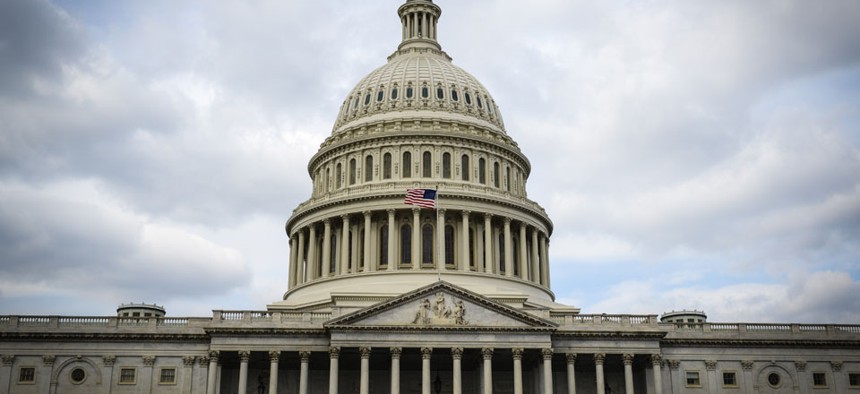Senate Vote to Rein in NSA Spying Falls Short

Brandon Bourdages/Shutterstock.com
The defeat marks an abrupt setback for the post-Snowden movement to curb U.S. spying practices.
Senate Republicans blocked legislation Tuesday that would limit the government's sweeping domestic spying powers, dealing a massive blow to the post-Snowden efforts to reform the U.S. surveillance state.
At a final vote of 58 to 42, nearly every Democrat and four Republicans voted for the bill, the USA Freedom Act, but it failed to clear the 60-vote threshold necessary to move forward in the upper chamber. Its defeat almost certainly means that any reforms to the National Security Agency will have to wait until next year, when Republicans take over the Senate.
The Freedom Act, which first emerged in Congress in the months following former NSA contractor Edward Snowden's leaks last summer, was widely supported by the tech industry, privacy and civil-liberties advocates, the Obama administration, and even senior members of the intelligence community.
But with the country engaged in military operations with the Islamic State in Iraq and Syria, a majority of Republicans rallied against the Freedom Act. Minority Leader Mitch McConnell, Sen. Marco Rubio of Florida, and others suggested the bill could make Americans more vulnerable to terrorist attacks.
Sen. Rand Paul, who has long criticized the NSA, also voted against the measure. Last week, Paul's office said the Kentuckian would oppose the measure because it does not go far enough and would renew a portion of the post-9/11 USA Patriot Act, which grants the government expansive spying powers. Backers of the Freedom Act saw Paul as a crucial and necessary ally to punch the bill through the Senate.
In a statement issued after the vote, Paul touted his role in preventing the bill's passage.
"Today's vote to oppose further consideration of the Patriot Act extension proves that we are one step closer to restoring civil liberties in America," Paul said.
The measure did earn some Republican support, from Sens. Ted Cruz, Mike Lee, Dean Heller, and Lisa Murkowski. Cruz in recent weeks had become more vocal in his criticisms of the NSA, which he said has acted with disregard of the Constitution.
Sen. Bill Nelson of Florida was the lone Democrat to vote down the bill.
The measure, authored chiefly by Senate Judiciary Committee Chairman Patrick Leahy, would effectively end the government's mass collection of metadata—the numbers and time stamps of phone calls but not their actual content. The once-secret practice was the first program exposed by Snowden last summer, which kicked off a torrent of disclosures revealing the size and scope of the U.S. government's broad surveillance authority.
Under the bill, phone companies such as Verizon would instead retain those records, which intelligence agencies could obtain only after being granted approval from the Foreign Intelligence Surveillance Court. The bill would also usher in a host of additional privacy and transparency measures, including a more precise definition of what can be considered a surveillance target.
The House passed its own version of the bill in May, but last-minute changes caused privacy groups to drop their support for the measure.
The issue will have to resurface next year because core provisions of the Patriot Act are set to expire in June. Privacy advocates will lobby for restrictions on the NSA's powers in any measure to reauthorize the controversial law. But lawmakers may ultimately back only limited reforms if the only other option is killing NSA authorities altogether.
In January, Obama announced that his administration would reform the way the NSA collects and stores telephone metadata of virtually all Americans. The president also promised further transparency measures and said he wanted to restore the nation's trust in the government's intelligence agencies.
But Obama also said he could only do so when Congress sent him a bill that closely matched his recommended changes.
Brendan Sasso and Sarah Mimms contributed to this article.
(Image via Brandon Bourdages/Shutterstock.com)
NEXT STORY: Can mobility trump bureaucracy at DOD?



